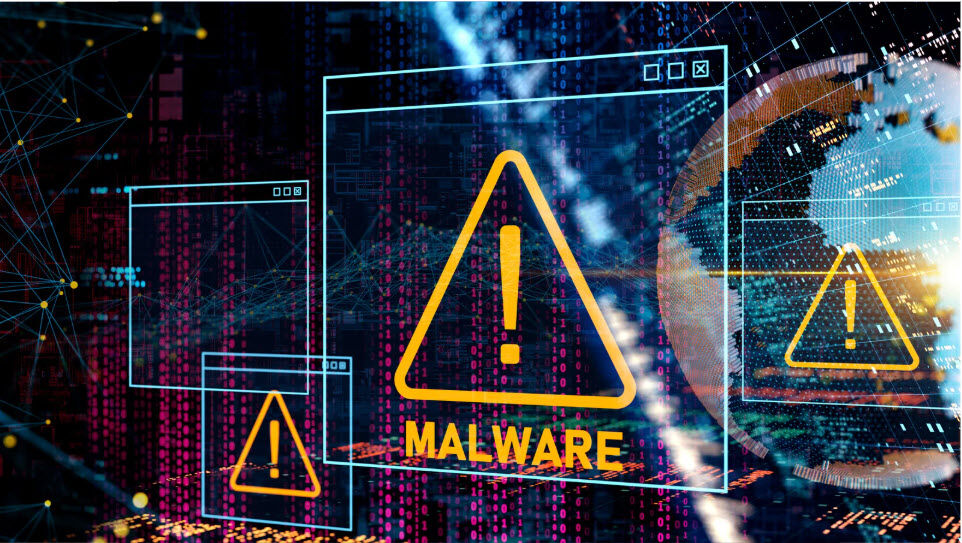What is malware?
Malware is a various type of malicious software, developed
by the cybercriminals (called hackers) to allow them steal sensitive data,
damage or destroy computers and computer systems. The common malware that the
hackers usually hack into computers are viruses, worms, Trojan viruses,
rootkits, spyware, and ransomware.
The malware can install to your device either by downloaded
infected file or installed infected software or download link in an email which
automatically installs malicious software onto your device called Phishing and
Spear-phishing.
The example of malware intentionally:
-𝗚𝗮𝘁𝗵𝗲𝗿𝗶𝗻𝗴 𝗶𝗻𝘁𝗲𝗹𝗹𝗶𝗴𝗲𝗻𝗰𝗲 𝗮𝗻𝗱 𝗶𝗻𝗳𝗶𝗹𝘁𝗿𝗮𝘁𝗶𝗻𝗴
Unauthorized extraction of data, including emails, plans, and particularly confidential details like passwords.
-𝗖𝗮𝘂𝘀𝗶𝗻𝗴 𝗰𝗵𝗮𝗼𝘀 𝗮𝗻𝗱 𝗱𝗲𝗺𝗮𝗻𝗱𝗶𝗻𝗴 𝗽𝗮𝘆𝗺𝗲𝗻𝘁
By encrypting networks and PCs, rendering them inoperable. When this is done with the intention of financial extortion, it’s termed ransomware.
-𝗦𝗮𝗯𝗼𝘁𝗮𝗴𝗲 𝗼𝗿 𝗺𝗮𝗹𝗶𝗰𝗶𝗼𝘂𝘀 𝗱𝗲𝗳𝗮𝗰𝗲𝗺𝗲𝗻𝘁
Deliberately ruining computer systems to harm your network infrastructure.
-𝗠𝗶𝘀𝗮𝗽𝗽𝗿𝗼𝗽𝗿𝗶𝗮𝘁𝗶𝗻𝗴 𝗰𝗼𝗺𝗽𝘂𝘁𝗶𝗻𝗴 𝗿𝗲𝘀𝗼𝘂𝗿𝗰𝗲𝘀
Utilizing your computational power for activities such as running botnets, engaging in crypto mining, or sending spam emails.
-𝗙𝗶𝗻𝗮𝗻𝗰𝗶𝗮𝗹 𝗽𝗿𝗼𝗳𝗶𝘁
Selling your organization’s intellectual information on the dark web.
Types of malwares
-𝗩𝗶𝗿𝘂𝘀: It’s a harmful program that has been linked to a file or document. Once the file is downloaded, opened, and activated, it can propagate from one device to another. Viruses have the potential to cause disruptions to the operating system, leading to issues like data loss.
-𝗪𝗼𝗿𝗺𝘀: It spreads through a network by replicating itself at an exponential rate once the file is downloaded or connected to the network. The effect of worms can cause the data loss and operational disruption on a device like viruses.
-𝗧𝗿𝗼𝗷𝗮𝗻 𝘃𝗶𝗿𝘂𝘀: It designed to gain access to sensitive data and then modify, block, or delete data once the user downloads file or software.
-𝗥𝗼𝗼𝘁𝗸𝗶𝘁𝘀: It is a malware that designed to grant the hacker administrative rights to a targeted computer. It is difficult to detect or remove because it is installed manually outside of the typical layer of user applications.
-𝗦𝗽𝘆𝘄𝗮𝗿𝗲: It is a software that designed to track the user’s internet activities and application used activities, collect the credentials data such as financial data, credit card information, username, and password. Then send the data to the hacker without user’s permission. This malware is mostly used to steal financial information and personal information. The keylogger is mostly used to steal username and password information.
-𝗥𝗮𝗻𝘀𝗼𝗺𝘄𝗮𝗿𝗲: It is a type of malware that the hacker uses to block users access to a system or credential information by encrypted it and threat them to pay money to decrypted and release accessibility to the users. There are two different types of ransomware, one is called crypto ransomware which targets to encrypt files on a user’s device, another is locker ransomware which targets to lock the users out of their device.



